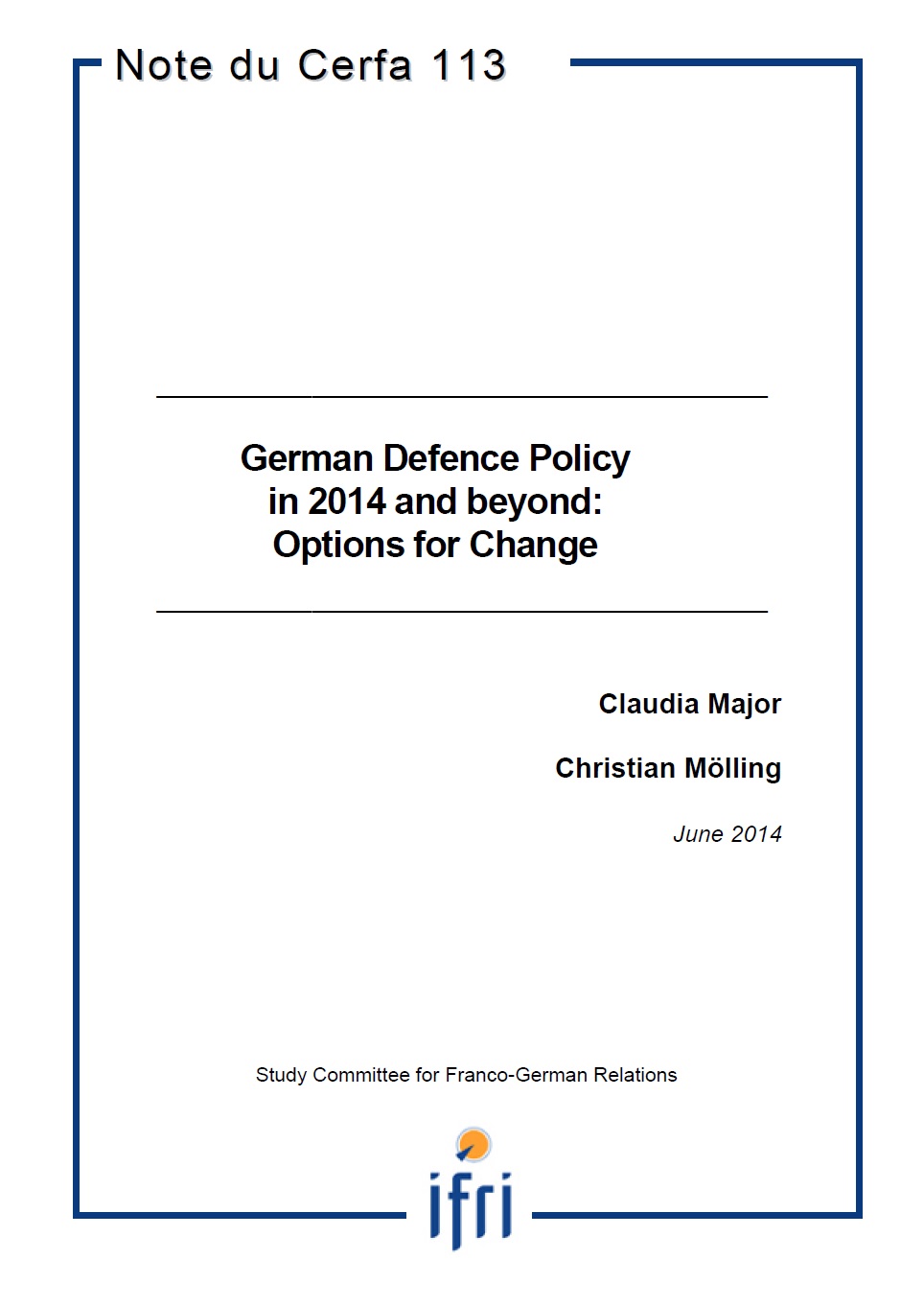German Defence Policy in 2014 and beyond: Options for Change

The speeches made by several German leaders at the Munich Security Conference in early 2014, emphasized that Germany needs to be ready for greater international commitment, and without a priori excluding military instruments.

While several elements seem to indicate growing awareness that change is needed, the nature of German contributions – especially in Africa – shows the long road ahead. A basic contradiction persists between the government’s rhetoric that Germany should participate in international operations and the political limitation on its contributions toward training, advisory functions and logistical support. Apart from political support at the highest level, increased responsibility needs also to be supported by public opinion, which still lacks enthusiasm for what it often perceives as militarism. Similarly, German defence export policy is torn between the government’s willingness to support industry in exporting and the negative feedback about these exports from the public. Change may occur as a result of external developments, linked to NATO or the defence industry, but these impulses need to be taken up by national debate. It remains to be seen whether or not the direction taken will coincide with that outlined in Munich. The crisis in Ukraine must also be taken into account: it could have a catalytic effect, increasing Germany’s visibility and engagement in NATO. Through this crisis, Germany is under pressure to intensify its engagement.
Claudia Major is deputy head of the Research Division “International security policy” at the German Institute for International and Security Affairs (Stiftung Wissenschaft und Politik).
Christian Mölling is Research associate at the German Institute for International and Security Affairs (Stiftung Wissenschaft und Politik).

Available in:
Regions and themes
ISBN / ISSN
Share
Download the full analysis
This page contains only a summary of our work. If you would like to have access to all the information from our research on the subject, you can download the full version in PDF format.
German Defence Policy in 2014 and beyond: Options for Change
Related centers and programs
Discover our other research centers and programsFind out more
Discover all our analysesThe Franco-German Brigade and the Revival of European Defense
One thing has been clear since Donald Trump's return to the White House: the very existence of the European unification project is threatened. Unless it develops a sovereign defense policy to counter the war in Ukraine and the weakening of American security guarantees, the European Union will continue to see its internal cohesion and external attractiveness wane.
Friedrich Merz and the Zeitenwende 2.0. A “New Era” for Transatlantic Relations?
On February 23, 2025, almost 60 million voters were called upon to elect a new Bundestag. These elections will also give rise to a new government in Europe's largest economy.
After the Elections: Germany in Search of Shaken Stability?
With a voter turnout of 82.5%, Germany recorded its highest participation since 1987—an increase of 6.1 percentage points compared to 2021. As in the previous election, the high turnout particularly benefited the Alternative for Germany (AfD), which was able to mobilize many former non-voters. Many voters sought to punish the outgoing government with their ballots, as its approval rating had dropped to just 14% before the coalition broke apart in November 2024. Germany is now very likely heading toward a grand coalition between the CDU/CSU and the SPD, with exploratory talks having begun on February 28.
The German Greens as an Alliance Party: The End of an Illusion?
At the Wiesbaden Congress in November 2024, Robert Habeck, currently Minister for the Economy and Climate, was nominated as the Green Party’s candidate for the Chancellorship in the early parliamentary elections on February 23, 2025. The party, founded 45 years ago, is now firmly established in the German political landscape. Wishing to turn the page on an unloved ‘‘traffic light’’ coalition, the party is banking on a personal campaign and an optimistic discourse based on the energy transition and social justice.








